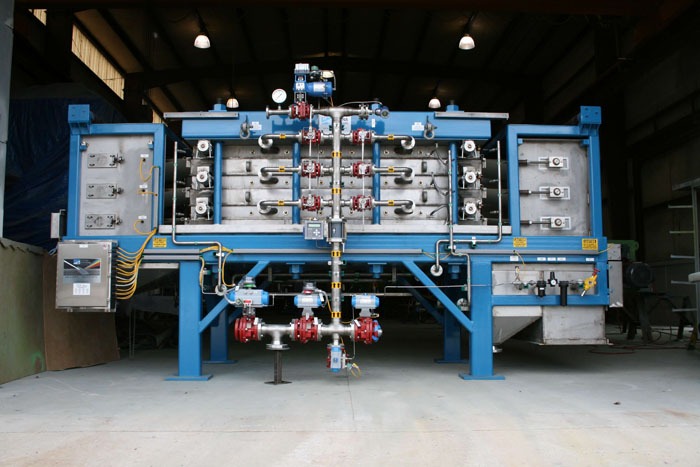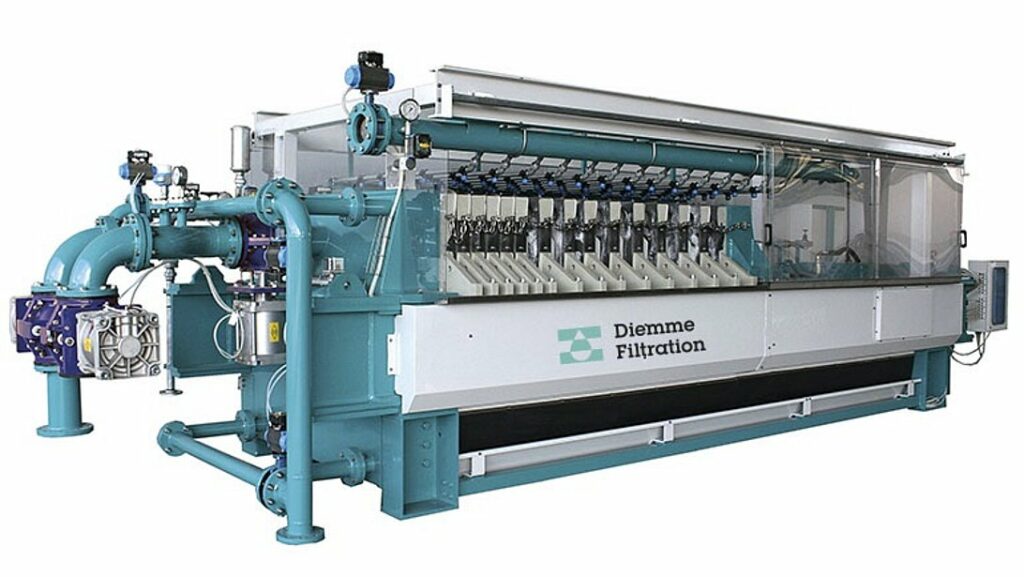The guide explores the Filter Press, an essential tool for solid-liquid separation in various industries. Discover how does it works, with step-by-step processes, and its versatile applications. Learn about its benefits, from efficient separation to waste volume reduction. Real-life examples, such as the oil industry and winemaking, demonstrate its practical use.
What is a Filter Press and How Does it Work?
Introduction: The Filter Press is a vital industrial device for efficient solid-liquid separation processes. Learn about its working principles, step-by-step operation, and applications in various industries.

Working Principle
The equipment operates based on pressure-driven filtration. It consists of filter plates with a filter medium between them. When pressure applies, the liquid passes through the medium, while solid particles form a filter cake.
Step-by-Step Process of Filter Press Operation
- Filling and Pre-compression: The slurry pumping into the equipment, and pre-compression removes excess air, ensuring even distribution.
- Filtration: The primary filtration process starts as the equipment compress, separating liquid from solid, and forming a filter cake.
- Plate Separation and Cake Discharge: After filtration, the pressure is released, plates are separated, and the filter cake is discharged.
Applications
The equipment finds versatile applications across industries:
- Wastewater Treatment: Used for dewatering industrial wastewater and municipal sludge, reducing waste volume for disposal.
- Chemical Industry: Utilized in pigment production, starch processing, and pharmaceutical manufacturing for liquid-solid separation.
- Mining and Metallurgy: Efficiently separates valuable minerals and metals from ores, enhancing mining processes.
Real-life Example Applications
- Oil Industry: The Filter Press is employed to separate oil from sludge during drilling and refining, minimizing environmental impact.
- Winemaking: Wineries clarify wine by using the equipment to remove unwanted particles, ensuring high-quality end products.
- Food Processing: Filter Presses extract liquids from solid food substances, like pressing fruits for juice extraction.
Benefits of Using Filter Press
- Efficient Separation: The Filter Press provides thorough separation, producing dry filter cakes with high purity.
- Reduced Waste Volume: By separating liquids from solids, This equipment reduces waste volume, improving waste management.
- Versatility: The equipment handles various materials and adapts to different industrial applications.

Conclusion
In conclusion, the equipment is an invaluable tool for solid-liquid separation, offering efficiency, waste reduction, and versatility. It plays a crucial role in wastewater treatment, mining, chemical, and food industries. By understanding its working principles and applications, enterprises can optimize their processes and achieve better outcomes. Embrace the potential of the Filter Press and enhance productivity while producing high-quality products.